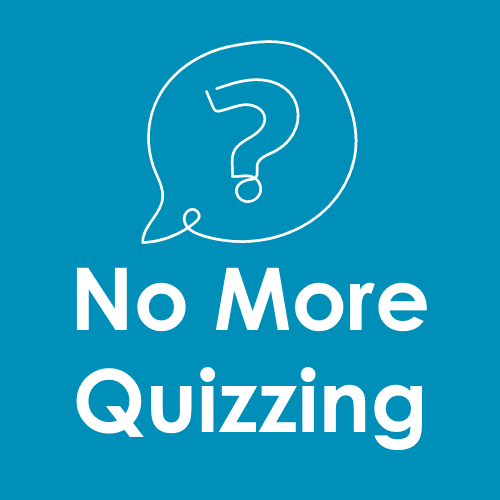The Perils of Quizzing
Friday March 26, 2021

Imagine this… You’re in middle school. The teacher asks a question, and you have no idea what the correct answer is. The teacher looks for someone to call on. You keep your eyes down, hoping she doesn’t call on you. But of course, you hear her say your name. Of all the people she could have chosen. You don’t know the answer, and you feel like a fool.
I can vividly remember this feeling, and it was awful. I think we can all agree that being put on the spot is something we all want to avoid.
What we don’t realize is that we often put those with dementia in this exact situation by asking questions that seem innocent to us.
Who is that in the picture?
Do you remember who I am?
What did you have for lunch today?
When is your appointment?
While these questions seem simple enough, what you are really doing is testing your loved one’s memory. You would never ask someone with a broken leg to walk across a room unassisted, yet we ask our loved ones with a brain disease to remember.
When they don’t know the answer to our questions, they may feel dumb, frustrated, or angry. No one wants to feel this way.
Instead of quizzing and setting your loved one up for failure, switch your approach. Our goal should always be to help those with memory loss feel successful.
Some Examples
Old Way – “Do you remember me?”
New Way – “Hey, mom! It’s me, Sharon.”
This gives your loved one a hint about your relationship and your name.
Old way – “Who is in this picture?”
New Way – “Dad, I remember this Christmas when Sally and Jim came to visit us, and we all went to Gatlinburg for the holiday. That was so fun.”
Use the photo to start a conversation. Maybe your dad will remember the people in the photo. Maybe he won’t. Either way, you get to share a good story.
Old Way – “Do you remember when….?”
New Way – “Mom, I remember my 13th birthday, when you made such a big fuss over me. That homemade chocolate cake must have taken hours to make. That was my most favorite birthday.”
This approach allows you to reminisce with Mom without putting her on the spot. You may trigger a memory while you are talking, and she can join in. Or she may not remember. Either way, you’re sharing a happy story.
Old Way – “What did you do today?”
New Way – “I am so glad that you got to go out with Mary for lunch and then shopping. I bet you two had so much fun today.”
This approach gives your loved one hints about the day rather than making them recall those details.
Old Way – “What do you want to eat?”
New Way – “Hun, I think you love the pork tenderloin here. How does that sound?” OR “Would you like to have the pasta or a hamburger?”
Restaurant menus can be overwhelming for those with dementia – too many options. This approach protects your loved one on from having to make a decision on the spot. Help them by making a suggestion or limiting options.
Old Way – “How old are you?”
New Way – Don’t ask… because you already know!
There is no reason to test your loved one like this. They may truly not know how old they are or may see themselves as younger than they really are.
It is normal to want to have conversations with your loved one just as you always have. But when your loved one has dementia, you have to shift, so you do not put them on the spot to come up with a correct answer.
This is something all caregivers have to learn. It does not come naturally because this is not the “normal” way of conversing. It is very different. When you say something wrong, don’t panic. Just try to do better next time. It takes practice. Making these changes will set your loved one up for success and make your relationship much more positive.




